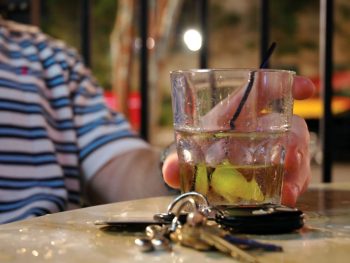Drink drive and road safety warnings for Jubilee bank holiday
Motorists are being warned of the dangers of both drink driving and fatigue on long journeys as an estimated 15 million people gear up for the Jubilee celebrations.

Just a small amount of alcohol slows your reaction time, inhibits judgement and reduces both concentration and co-ordination – increasing the likelihood of an accident
With at least 16,000 official street parties planned, most of them on Sunday, breathalyser firm AlcoSense has warned that the school run on Monday morning could be a potential hazard as children return after half term.
If you drink four pints of medium-strong beer or four large glasses of wine, it can take up to 14 hours for the alcohol to clear your system.
“Police traditionally step up roadside breath testing in June and are expected to be out in force over the Bank Holiday,” said Hunter Abbott, MD of AlcoSense.
“Parents need to watch what they drink on Sunday, if they will be driving their kids to school early on Monday.
“Forty per cent of all breath tests are carried out between 6am and 1pm.”
An estimated 6,480 people were killed or injured on Britain’s roads in 2020 – the most recent year available – where at least one driver was over the drink drive limit. This includes 220 fatalities, with drunk drivers causing 15% of all road deaths.
And in June 2020, nearly one in five drivers (19%) stopped by police were over the limit.
In a poll conducted by AlcoSense, over a third of us (36%) think our ability to drive is only impaired if we are actually over the legal drink drive limit.
But you are 13 times more likely to be involved in a fatal crash at the English and Welsh limit, research shows.
“Just a small amount of alcohol slows your reaction time, inhibits judgement and reduces both concentration and co-ordination – increasing the likelihood of an accident,” added Hunter Abbott.
Meanwhile, breakdown and road safety organisation GEM Motoring Assist has said that drivers need to be properly rested before setting off on long road journeys over the coming Platinum Jubilee weekend – which is expected to see high levels of traffic.
It’s highlighting that drivers should understand the risks that can go with making a long road journey when you’re tired; fatigue can be a factor in up to 20% of all road collisions, and up to 25% of fatal and serious crashes.
GEM chief executive Neil Worth said: “A fatigue-related crash is around 50% more likely to result in death or serious injury, simply because a driver who has fallen asleep at the wheel will be unable to reduce speed or change direction to avoid a collision. The consequences can be devastating.
“Falling asleep at the wheel is easily avoided, but it’s vital you heed the many warning signs your body will give you before you actually nod off. These include finding it hard to concentrate, fidgeting, yawning constantly and rubbing your eyes frequently.
“When more serious levels of fatigue set in, you may find your thoughts constantly wandering away from driving, you may drift to the left or right, you may be slowing down without realising and you’ll suddenly find you cannot recall anything that happened in the past few minutes.
“At this stage your driving performance is seriously impaired, and it’s vital that you stop somewhere safe as soon as possible. A power nap and/or a caffeine-based drink can provide a short-term fix, but they should never be used as an acceptable substitute for proper rest. If you’re that tired, you must stop and rest properly.”
GEM’s tips for drivers to avoid reduce the risk of a fatigue-related collision over the Platinum Jubilee holiday include:
- Get a good night’s sleep before you drive a long journey.
- Build in time to reach your destination (or your night-stop) without rushing. Remove time pressures wherever possible.
- Avoid driving alone for long distances if possible. Share the driving and support each other by watching for any signs of fatigue.
- On long journeys, take a break of at least 15 minutes after every two hours or 100 miles. Get out of the car, do some exercise, stretch or walk. If necessary, have a caffeine drink or two to boost your alertness.
- Don’t press on into the night. Avoid driving at times when you would usually be asleep.















